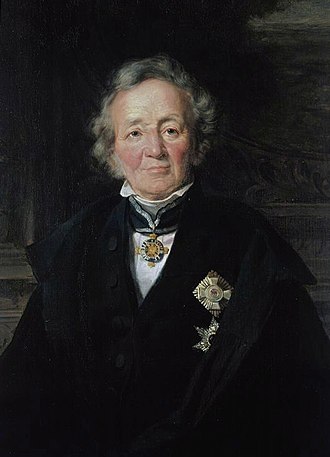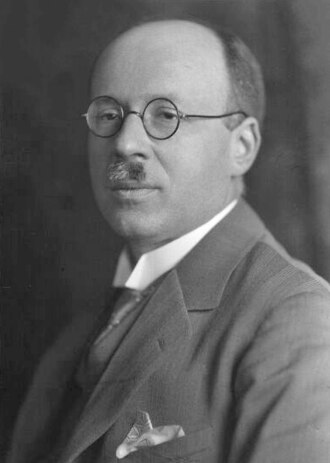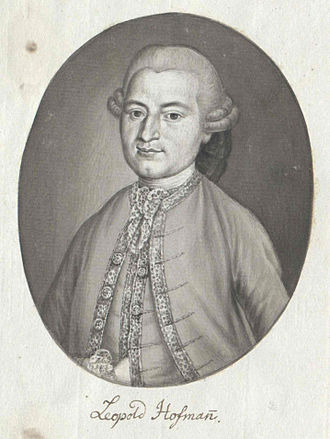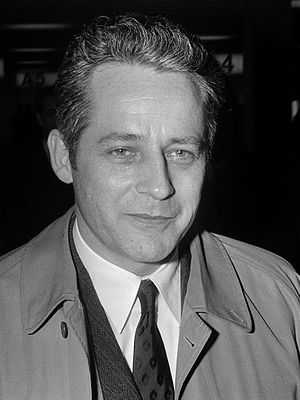Discover Your Roots
SIGN UPDiscover Your Roots
SIGN UPLeopold is a male name of English origin, meaning "People Bold." It is the modern form of the Germanic name Luitbald, derived from the Old High German elements "liut," meaning "people," and "bald" or "balt," meaning "brave." The name is not to be confused with "Leon" or "Leonard," which have different meanings related to lions. Leopold gradually gained popularity in Western Europe, particularly in the southern Holy Roman Empire during the 16th century, influenced by the Babenberg dynasty. The name has been borne by numerous historical figures in various fields, such as literature, music, science, politics, and royalty. Notable individuals include King Leopold, Leopold Mozart, and Leopold von Sacher-Masoch. Its versatility and rich history make Leopold a name with a strong and enduring legacy.

Leopold von Ranke (1795–1886) was a prominent German historian and pioneer of modern source-based history. He revolutionized historical research by implementing the seminar teaching method and focusing on archival research and the analysis of historical documents. Ranke's influence extended to Western historiography, earning him the reputation as a symbol of 19th century German historical studies. His emphasis on reliance on primary sources, narrative history, and international politics set the standards for later historical writing.Born in Wiehe, Thuringia, Ranke's early education instilled in him a deep love for Ancient Greek, Latin, and Lutheranism. He excelled in philology and the translation of ancient authors into German during his time at Leipzig University. Ranke's career began with the publication of "Histories of the Latin and Teutonic Peoples from 1494 to 1514," showcasing his utilization of a wide variety of sources. Subsequently, he was appointed as a professor at the University of Berlin, where he continued to shape the study of history. Ranke's dedication to primary sources and critical historical science was evident in his teaching and research, and he played a pivotal role in the development of professionalized history.Throughout his career, Ranke's work was characterized by his commitment to presenting history "the way it happened," and his preference for primary sources over secondary sources. His influence on historiography is widely recognized, and his legacy as a groundbreaking historian endures to this

Leopold Paula Bloom is the fictional protagonist and hero of James Joyce's 1922 novel Ulysses. His peregrinations and encounters in Dublin on 16 June 1904 mirror those of Ulysses/Odysseus in Homer's epic poem the Odyssey. The character's origins are tied to various real-life figures, including Alfred H. Hunter, Albert L. Altman, and Italo Svevo. Bloom's personality and habits as a Jewish character may have been influenced by Joyce's Trieste acquaintance Leopoldo Popper. Born in 1866, Bloom is the only son of Rudolf Virág, a Hungarian Jew who converted to Protestantism, and Ellen Higgins, an Irish Catholic. He converted to Catholicism to marry Marion (Molly) Tweedy, with whom he has a daughter, Millicent, and a son, Rudolph, who died in infancy. The novel Ulysses follows Bloom's odyssey through Dublin on 16 June 1904. This day, celebrated as 'Bloomsday' by Joyce aficionados, unfolds a series of encounters and incidents in Bloom's life, reflecting the intimate scale of Odysseus's journey.

Leopold Ružička, born Lavoslav Stjepan Ružička in 1887, was a Croatian-Swiss scientist and co-recipient of the 1939 Nobel Prize in Chemistry for his groundbreaking work in polymethylenes, higher terpenes, and the first chemical synthesis of male sex hormones. Ružička, who spent most of his life in Switzerland, received numerous accolades, including eight honorary doctorates and multiple prizes and medals for his contributions to science and medicine. He was born in Vukovar, Croatia, and later pursued studies in technical disciplines, ultimately specializing in organic chemistry. Ružička's research in natural compounds led to significant advancements in the fragrance industry, including the isolation and synthesis of compounds such as muscone and civetone. His work also extended to the industrial-scale synthesis of musk and the male hormones androsterone and testosterone. Throughout his career, Ružička's pioneering contributions revolutionized the fields of chemistry and biochemistry, solidifying his legacy as a visionary scientist and innovator. His dedication and expertise left an indelible mark on scientific research and continue to inspire future generations of chemists and researchers.

Leopold Hofmann, also known as Ludwig Hoffman, was an influential Austrian composer of classical music during the 18th century. Born on August 14, 1738, he began his musical journey at a young age, becoming a chorister in the chapel of Empress Elisabeth Christine. Throughout his career, Hofmann held various prestigious positions, including choral director at St. Peter's Church and Kapellmeister at the Cathedral of St. Stephan. He was also a teacher to the royal family and had a significant impact on the musical scene in Vienna. Hofmann's compositions, including symphonies, concertos, and other works, have been recognized for their artistic and technical brilliance. Despite his ill health, he continued to hold his position as Cathedral Kapellmeister until his passing on March 17, 1793. His legacy lives on through his extensive body of work, which has been cataloged and studied by music scholars. Hofmann's contributions to classical music have left an indelible mark on the genre, and his compositions continue to be celebrated and performed worldwide.

Leopold Gratz CGIH was an influential Austrian politician, serving in various governmental roles throughout his career. Born in Vienna, he was a law graduate from Vienna University and a prominent member of the Austrian Social Democratic Party (SPÖ). Gratz held several key positions, including serving as a member of the Bundesrat, Federal Minister of Education and the Arts, President of The National Council of Austria, Mayor of Vienna, Minister of Foreign Affairs, and more. His tenure as Mayor of Vienna was marred by controversy, particularly involving the "Bauring" affair and the scandal surrounding the construction of the Vienna General Hospital. Gratz's political career came to an end in 1989 following the Udo Proksch affair, where he faced criticism for attempting to shield his friend from criminal prosecution. Despite the controversies, Gratz received recognition for his contributions, including being named a Knight of the Grand Cross of the Order of Saint Silvester by Pope John Paul II and being granted Honorary Citizenship of Vienna. In 2010, a square behind the Austrian parliament in Vienna was named in his honor. Although his political career ended under a cloud, Gratz left a lasting impact on Austrian politics and society.
All images displayed on this page are sourced from Wikipedia or Wikimedia Commons.We use these images under their respective Creative Commons or public domain licenses. Wherever applicable, author attributions and license information are provided. If you believe an image is used incorrectly or outside its license terms, please contact us so that we can review and correct the issue.